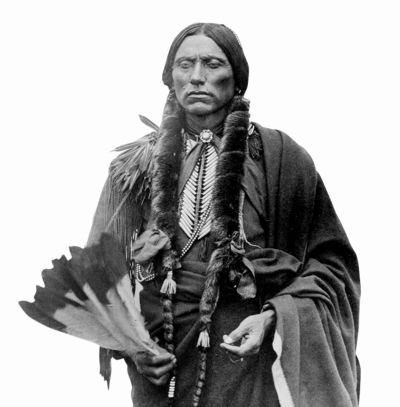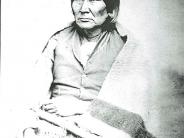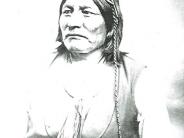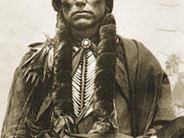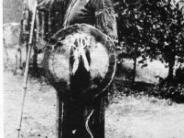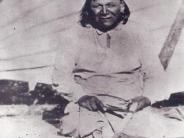History
Considered one of the great tribes of the American Southwest, the Comanche Nation, and in our native language, “Nʉmʉnʉʉ” (NUH-MUH-NUH), which means “The People" are known as “Lords of the Plains” and were once a part of the Shoshone Tribe. In the late 1600s and early 1700s, we moved from our Shoshone kinsmen onto the northern Plains and then southerly in search of a new homeland. We Migrated across the Plains through Wyoming, Nebraska, Colorado, Kansas, New Mexico, Texas, and Oklahoma. We ultimately settled here in Southwest Oklahoma. The horse was a crucial element in Comanche culture. The people mastered their skills on horseback and gained a tremendous advantage in times of war. They fought battles on horseback, a skill unknown among other Indian peoples of that time. They were highly skilled at breeding and trading horses, which became an essential resource for the people that radically changed life on the plains. Comanche horsemen set the pattern of nomadic equestrian life that became characteristic of the Plains tribes in the 18th and 19th centuries. Bands of the Comanche were formed based on kinship and other social relationships. The buffalo was also an essential resource for the people. It provided food, clothing, tepee covering, and other economical goods.
The Constitution of the Comanche Nation governs the Comanche Nation. The Tribal Council comprises all enrolled members over 18 and is the main governing body. Seven elected officials voted into office by the Tribal Council fill the positions of Chairman, Vice-Chairman, Secretary/Treasurer, and the four Committeeman seats, collectively called the Comanche Business Committee (CBC). The Tribal Council also elects the Tribal Administrator, who is responsible for the day-to-day operations of the Tribal Government. The Comanche Business Committees' primary objective is to carry out the mission of the Constitution of the Comanche Nation.
The mission of the Comanche Nation is to define, establish, and safeguard the rights, powers, and privileges of the tribe and its members, to improve the economic, moral, educational, and health status of its members, and to cooperate with and seek the assistance of the United States in carrying out mutual programs to accomplish these purposes by all possible means and to promote in other ways the common well-being of the tribe and its membership and all the while working to improve economic status and protect and manage the Nation's natural resources and cultural heritage. The Comanche Nation’s main headquarters is 9 miles north of Lawton, Oklahoma. The Comanche tribe currently has approximately 17,000 enrolled tribal members, with around 7,000 residing in the tribal jurisdictional area around Lawton, Ft Sill, and surrounding counties.

